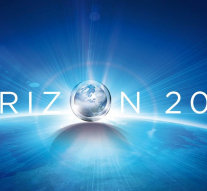
H2020: Innovation in the field of ICT for Health and Wellbeing
EU funding opportunities 11 December 2016The European Commission’s eHealth Action Plan 2012 – 2020 provides a roadmap to empower patients and healthcare workers, link up devices and technologies, and invest in research towards the personalised medicine of the future. From this point of view, Horizon 2020 Work Programme related to health is directly aligned with the agenda of the Commission and all the calls for proposals and activities will contribute substantially to this policy area as well as contributing in broader terms to one or more of the other areas.
Indeed, the call on personalised medicine (€332 million) will boost European industry and the socalled silver economy by investing in strategies for earlier and more effective prevention, diagnosis and treatments, and help Europe address the ageing population and chronic disease burden.
In the framework of Health, demographic change and well-being under the h2020 Societal Challenge Pillar, Personalised computer models and in-silico systems for well-being is open for submissions.
The call supports progress in systems medicine, multi-scale modelling and patient-specific modelling, that so far have only been used sporadically in exploring well-being, disease prevention or rehabilitation. These areas of intervention are crucial for reducing healthcare demand, building sustainable healthcare systems and for assuring a healthy and motivated workforce. More, innovative methods are needed for better understanding the influence of biological (including microbiome), social, environmental, lifestyle, occupational, economic etc. factors on human physiology and thereby on well-being and health. This could help in identification of interventions for improving well-being and health: by increasing resilience to challenges and illness, by better prevention adapted to predispositions and behaviours (including gender), by better consideration given to functional troubles, by better strategies of recovery and rehabilitation after illness.
Proposals should aim at the development of new integrative computer-models and simulation systems of acceptable validity, with the potential to being reused, built on open service platforms and with application in well-being, health and disease. The projects must include computer modelling and simulations able to aggregate various information sets e.g. molecular, biochemical, medical imaging, social, lifestyle, economic, occupational, microbiome, environmental, developmental, psychological, gender etc. to generate robust predictors for resilience to challenges and recovery from stresses and illness.
The models will process and apply individual/patient-specific information in a multi-scale approach for integrating information from at least one biological level from molecule to entire body within a wider context. Proposals will focus on multi-disciplinary research in medicine, Social Sciences and Humanities (SSH) and ICT and should take advantage, when relevant, of existing large databases in clinical medicine, biomedical or occupational research, environmental sciences, SSH, so enabling and facilitating the accumulation and combining of complex and heterogeneous data collections. The models integrated in these multi-scale and multi-disciplinary approaches are to have their predictive capability validated by state-of-the-art clinical and/or laboratorial studies and/or against large health registries. Whenever relevant, proposals will integrate data collected over time in order to inform on individual trajectories with periods of well-being and periods of illness and on the heterogeneity of resilience and recovery that can be different during the individual lifetime.
The solutions are expected to to measurably contribute to:
- Benefit for health and well-being: new personalised interventions for increasing resilience and recovery.
- Advancements in medical computer-modelling and simulation that takes into account time scale.
- Supporting predictive and preventive approaches in medicine, neurosciences and life sciences.
- Improving knowledge about well-being and association with life circumstances.
The Commission considers that proposals requesting a contribution from the EU of between EUR 4 and 6 million would allow this specific challenge to be addressed appropriately.
Proponents will see a funding contribution up to 100% of total eligible costs, unless the Work programme provides exceptionally for another rate.
The deadline for the submission of projects is 14 March 2017 17:00:00
Further information and all official documents of this Call for proposals can be found in the Participant Portal







